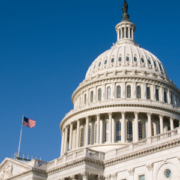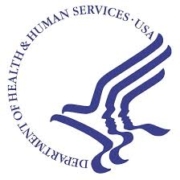Beginning today, NASH is expanding its regular updates to encompass a broader scope of federal health policy endeavors to include other matters of importance to providers. Feel free to share this newsletter with others in your organization or to send us the email addresses of those you think might be interested and we will send it directly to them.
The following is the latest such information from the federal government as of 2:45 p.m. on Wednesday, March 24.
 Congress
Congress
The temporary delay of implementation of the Medicare two percent sequester expires at the end of the month and amid considerable advocacy by the health care community, Congress is considering extending this delay. Last week the House passed a bill that would extend the current moratorium through December 31, 2021 and would waive “PAYGO” rules that apply to the American Rescue Plan Act that would necessitate an additional two percent sequester on Medicare payments starting in January, which would be added to the existing sequester to result in a four percent sequester. The Senate will not take up the House bill but could take up S. 748, which would extend the current moratorium for the duration of the COVID-19 public health emergency. Even if it does take up S. 748 this week the House is unlikely to address it immediately because both chambers will recess after Friday until April 9. It is possible CMS may hold claims for a short period after March 31 if it appears Congress will act on this matter without much delay.
Provider Relief Fund
- The “reporting requirements and auditing page” in the Provider Relief Fund web site has been updated with the following notice:
New Provider Relief Fund reporting requirements – PDF* were issued on January 15, 2021 in accordance with the Coronavirus Response and Relief Supplemental Appropriations Act of 2021. In response to stakeholder feedback, HHS is currently reviewing this guidance and Provider Relief Fund reporting timelines. We will post any updates on this website as soon as they are available. We continue to encourage recipients of $10,000 or more in aggregate Provider Relief Fund payments to register in the Provider Relief Fund Reporting Portal.
White House
COVID-19
- The White House has posted transcripts of the March 19, March 22, and March 24 press briefings provided by its COVID-19 response team and public health officials.
Department of Health and Human Services
Health Policy News
The Biden administration has nominated the following individuals to positions in the Department of Health and Human Services.
Office of the Secretary
Kristina Schake, Counselor to the Secretary for Strategic Communications
Office of the Assistant Secretary for Public Affairs
Israel Igualate, Deputy Speechwriter
Office of the General Counsel
Barbara McGarey, Deputy General Counsel
Office of the Assistant Secretary for Planning and Evaluation
Rebecca Haffajee, Principal Deputy Assistant Secretary for Planning and Evaluation
Miranda Lynch, Deputy Assistant Secretary for Planning and Evaluation (Human Services Policy)
Office of the Assistant Secretary for Preparedness and Response
Jonathan Warsh, Senior Policy Advisor COVID Response
Leni Hirsch, Special Assistant COVID Response
Office of the Assistant Secretary for Administration
Cheryl Campbell, Principal Deputy Assistant Secretary for Administration
Office of Global Affairs
Stephanie Psaki, Senior Advisor on Human Rights and Gender Equity
Substance Abuse and Mental Health Services Administration
Trina Dutta, Senior Advisor
See this HHS news release for further information.
- HHS announced that it is extending access to the special enrollment period of the Affordable Care Act’s health insurance marketplace until August 15. The purpose of this extension is to give consumers additional time to take advantage of new savings made available through the American Rescue Plan and give new and current enrollees an additional three months to enroll or re-evaluate their coverage needs with increased tax credits available to reduce premiums. Learn more from this HHS announcement.HH Find additional information in this accompanying HHS fact sheet.
- HHS’s Office of the Inspector General has published the report “Hospitals Reported that the COVID-19 Pandemic Has Significantly Strained Health Care Delivery.” HHS describes the report as “…a national snapshot, from the perspective of front-line hospital administrators, on how responding to the COVID-19 pandemic has affected their capacity to care for patients, staff, and communities. This is not a review of the HHS response to the COVID-19 pandemic.”
Centers for Medicare & Medicaid Services

- CMS has updated its list of hospitals that have been approved to participate in its Acute Hospital Care at Home Program.
- CMS has updated its guidance on limits on the use of information produced from COVID-19 variant testing performed by laboratories that are not CLIA-certified.
- In the past ten days CMS has issued section 1135 waives to 42 U.S. states and territories. 1135 waivers give states greater flexibility to serve their Medicaid beneficiaries during the COVID-19 public health emergency. Go here to see a list of the waivers granted and find links that describe the individual waivers.
National Nursing Home Stakeholder Call
On Thursday, March 25, 2021 at 4:00pm (eastern), CMS will address questions about its updated nursing home visitation guidance. In addition, participants will hear from a nursing home administrator currently implementing the new guidance. Register for this Zoom call here. Resources for the call are:
- Updated Nursing Home Guidance with Revised Visitation Recommendations Fact Sheet
- Nursing Home Visitation Infographic (PDF)
- Nursing Home Visitation Infographic (Spanish) (PDF)
Centers for Disease Control and Prevention
COVID-19
- The CDC has updated its data on COVID-19 variant cases in the U.S.
- The CDC has updated its information about adverse effects from COVID-19 vaccines.
- The CDC has updated its resources to help employers encourage their essential workers to receive COVID-19 vaccines.
- The CDC has published research on counties with high rates of COVID-19 and large racial and ethnic minority populations.
Food and Drug Administration – COVID-19
COVID-19
- The FDA has issued emergency use authorization for the first machine learning-based COVID-19 non-diagnostic screening device that identifies certain biomarkers that are indicative of some types of conditions, such as hypercoagulation. The device is worn as an arm band and uses artificial intelligence. See the FDA’s announcement and its emergency use authorization letter.
National Institutes of Health
COVID-19
- In a news release, the NIH announced that “Results from a large clinical trial in the United States and South America indicate that AstraZeneca’s COVID-19 vaccine, AZD1222, is well-tolerated and protects against symptomatic COVID-19 disease, including severe disease or hospitalization. The independent Data and Safety Monitoring Board (DSMB) overseeing the trial identified no safety concerns related to the vaccine.”
- Later the same day, the NIH’s Data and Safety Monitoring Board (DSMB) announced that it has notified NIAID (the National Institute of Allergy and Infectious Diseases), BARDA (the Biomedical Advanced Research and Development Authority), and AstraZeneca that “it was concerned by information released by AstraZeneca on initial data from its COVID-19 vaccine clinical trial. The DSMB expressed concern that AstraZeneca may have included outdated information from that trial, which may have provided an incomplete view of the efficacy data.”

 Congress
Congress The Biden administration has nominated the following individuals to positions in the Department of Health and Human Services.
The Biden administration has nominated the following individuals to positions in the Department of Health and Human Services.